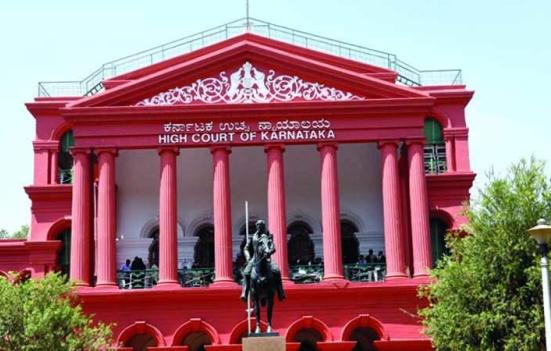Sushree Mohanty
The Karnataka High Court permitted the National Highways Authority of India (NHAI) to withdraw its argumentative affidavit in which the authority had made charges that the Environment Protection Act was implemented under the influence of Foreign Powers.
A Two-Judge Bench comprising Chief Justice Abhay Shreeniwas Oka and Justice SS Magadum permitted the withdrawal of the affidavit after Senior Advocate Udaya, representing NHAI submitted before the Court that the authority has given Rs 2.5 lakh each to two Environmental Associations as expenses.
The two Associations to whom donations have been made are Indian Council of Forestry Research and Education and Research and the Wildlife Institute of India.
“We hereby allow the application made by NHAI seeking withdrawal of its affidavit dated January 4. This order means that the Statement of Objections filed on record will not be treated as the statement of objections of the National Highways Authority of India. However, the same shall remain on record. We hope and trust that considering what has transpired, officers of NHAI will show sensitivity to laws relating to the Environment,” said the court.
The Court additionally issued a notification to both NHAI and the Central government to file their response on the complaints/affidavits concerning the matter within one month time period.
In the previous week, the Court had proposed NHAI to make monetary donations to ecological or environmental associations in the event of filing for withdrawal of its affidavit.
NHAI had documented a Public Interest Litigation plea raising its objections and questioning the rule of the Ministry of Environment, Forest and Climate Change in 2013 that allowed for the exception for the development of National Highways which are more than 100 kilometres without going through an Environmental Impact Assessment (EIA).
The National Highway Authority of India (NHAI), in its filed affidavit, claimed that the Environment Protection Act of 1986 (EP Act) was implemented by Parliament under the influence of Foreign forces and powers.
It further asserted that non-profit organisations which record Public Interest Litigation (PIL) pleas under the Environment Protection Act are doing so only due to the pressure and occurrence from such foreign powers.
The Act was passed by the Parliament not only for the protection of the environment but also at the instance of foreign powers. And many NGOs are filing such writ petitions at the instance of foreign powers,” the affidavit had stated.
The charges in the said affidavit were not restricted to the applicant in the current case, however, it additionally dragged other Non-Profit Organisations as well.
“Many organisations in India calling themselves Environmental Action Groups such as Amnesty International etc are actively involved in attacking development projects and challenging government policies and notifications and doing anti-national activities. There are many NGOs receiving funds from foreign sources and church funds in contravention of laws.”, the NHAI added.
Chief Justice Abhay Shreeniwas Oka, who was presiding over the case and expressing his strong exemption to the statement said that that he had, in his 17 years of experience as High Court judge, had never expected such unpleasant contentions by a government office.
The Hon’ble Court had then sought a clarification from the NHAI.
The NHAI subsequently documented another affidavit statement giving a genuine expression of remorse for the inappropriate contentions made in its assertion of complaints recorded before.
It likewise affirmed the court that it will maintain its decency while filing for pleadings before the Court.

